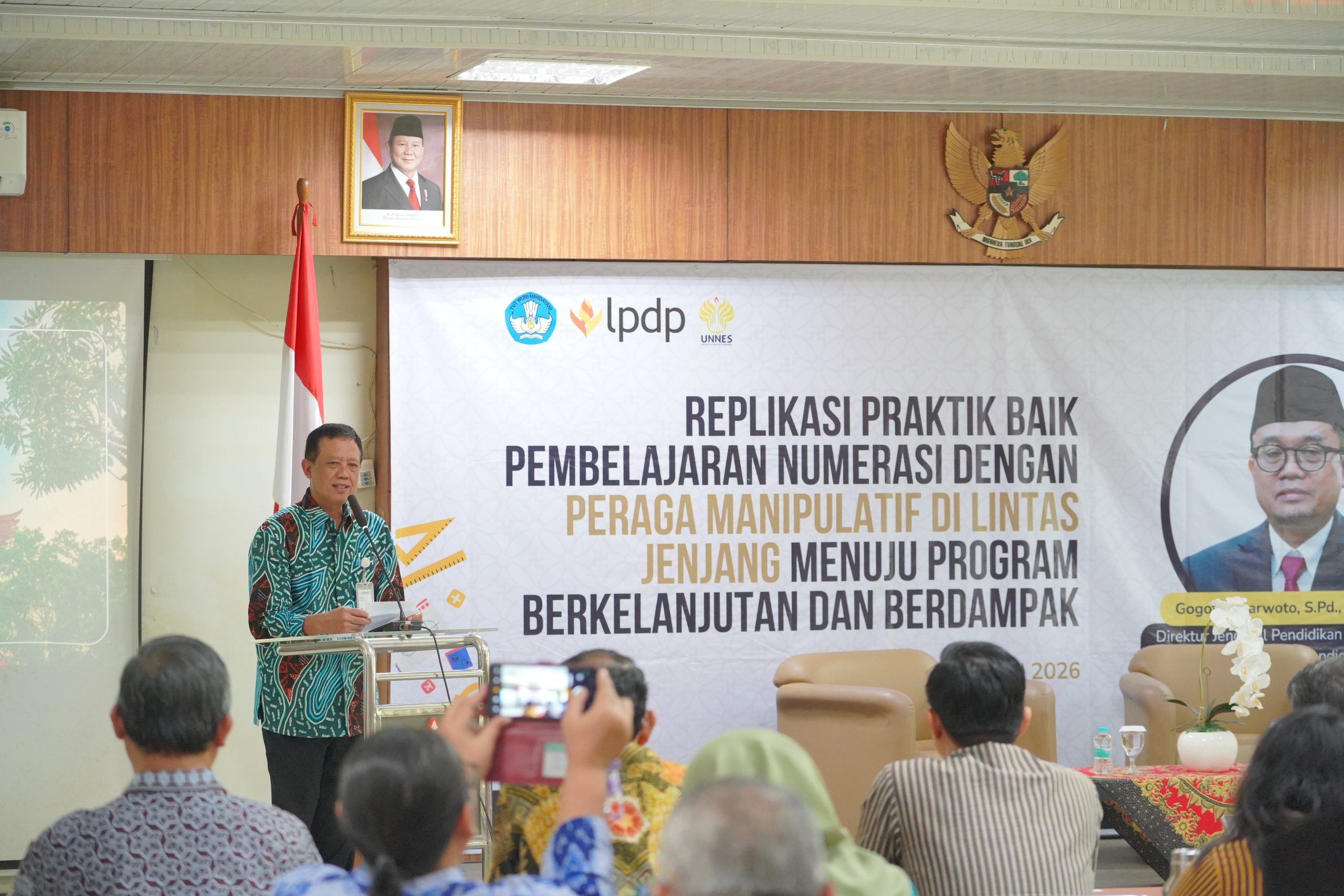Rektor Universitas Negeri Semarang (UNNES) Prof Dr Fathur Rokhman MHum mengatakan konsep Kepemimpinan Bertumbuh bisa menjadi akselerasi peran pendidikan tinggi hukum dalam mewujudkan Penegakan Hukum yang Humanis dan Berkeadilan.
“Profesi Hukum Merupakan Officium Nobile, Profesi yang Mulia dan Terhormat. Untuk itu Konsep Kepemimpinan Bertumbuh dapat menjadi bagian akselerasi pendidikan tinggi hukum dalam mewujudkan penegak hukum yang humanis dan berkeadilan,” tutur Prof Fathur dalam acara stadium general yang diselenggarakan Fakultas Hukum UNNES yang mengangkat tema “Peran Pendidikan Tinggi Hukum dalam mewujudkan Penegakan Hukum yang Humanis dan Berkeadilan,” yang dilaksanakan secara Daring Kamis (16/9).
Prof Fathur menambahkan, profesi hukum yang berintegritas akan mewujudkan tujuan hukum dalam memberikan kepastian, keadilam dan kebermanfaat.
Karena itu, Prof Fathur melanjutkan, pentingnya membangun kepemimpinan bertumbuh bagi para profesi hukum dengan lakukan 4 ON yaitu Visi-on, Passi-on, Acti-on, dan Collaborati-on.
Hadir sebagai pembicara Rektor Universitas Sebelas Maret (UNS) sekaligus Guru Besar Hukum UNS Prof Dr Jamal Wiwoho SH MHum mengatakan, penegakan hukum di Indonesia selama ini terkesan carut marut dan terkesan hukum tumpul ke atas runcing ke bawah.
“Banyak kasus yang dapat menggambarkan rasa frustrasi di masyarakat akibat rasa keadilan hukum jauh dari apa yang diharapkan. Perlakukan hukum akhirnya membuat tingkat kepercayaan masyarakat terhadap profesionalitas, integritas dan kewibawaan penegak hukum dan lembaga-lembaga penegak hukum semakin menurun,” tutur Prof Jamal.
Menurut Prof Jamal, untuk mengatasi hal tersebut perlu membangun kesetaraan hukum yang berkedalian dan humanis.
“Pada dasarnya hukum yang berkeadilan dan humanis adalah hukum yang berlandasakan pada nilai-nilai kemanusian, moral dan etika yang tumbuh dan hidup di masyarakat.Untuk itu upaya perbaikan penegakan hukum di indonesia harus diperkuat dengan menguatkan polittical will, meninggalkan kepentingan politis,” ujarnya.
Prof Jamal mengatakan, disini peran perguruan tinggi dituntut dalam upaya membentuk sdm penegahk hukum yang kompeten, melakukan re-orientasi dan pembaruan metode pembelajaran hukum, meningkatkan kapasitas SDM penegak Hukum melalui pendidikan serta pelatihan dan penyegaran, melakukan riset dan kajian-kajian penegakan hukum bersama, mengadakan diskusi dan kajian probelematika hukum.
“Secara ideal pendidikan tinggi hukum merupakan bagian dari sistem pendidikan nasional seyogyanya dapat berfungsi membekali dan menyiapkan peserta didik dengan ilmu pengetahuan dan keterampilan/ kemahiran hukum yang memadai, sehingga setiap lulusan sarhajan Hukum mampu merumuskan dan memecahkan berbagai macam persoalan hukum yang muncul dalam kehidupan masyarakat”, pungkasnya.
Dekan Fakultas Hukum UNNES Dr Rodiyah SPd SH MSi dalam sambutannya berharap kegiatan ini dapat memberikan manfaat bagi lulusan maupun penegak hukum yang memiliki kompetensi dan jiwa berketuhanan serta berkarakter pancasila.



